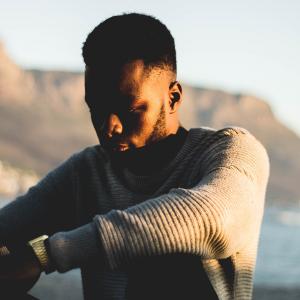A Life With Panic Disorder: Sam's Story
This article was written for Living With Anxiety by Sam Kaplan, a student at Colby College. This is his story of life with a panic disorder.
I have an anxiety disorder. There, I said it. It’s genetic it turns out. My mom has one, and so does my sister, but she’s the only one who takes medication for it. I can remember the first time I noticed it, my brooding silent passenger. It was in the sixth grade during Mr. Hirsch’s history class. He was talking about the upcoming inevitable war with Iraq and how last time around Sadam had used mustard gas.
Now, there is absolutely no reason why I should have been afraid of mustard gas. I wasn’t a soldier in 1990, and I wasn’t overseas. I was a twelve-year-old kid sitting in a classroom on the upper west side of Manhattan during a particularly sunny spring afternoon; but that’s the thing about anxiety disorders: there’s no reason behind the worry. That little voice other people have in their heads, the one that comforts and embraces them while softly whispering, “Hey, stop being ridiculous; that’s not going to happen.” I don’t have that.
I have no filter, no safety net to stop me from falling deeper and deeper into my own howling terror. My tormented thoughts come hard and fast, as if there were a crack in the dam in my brain. At first it’s nothing, but minutes later worries come screaming down a flashing river of neurons, and they don’t stop until I am drowned in a lake of distress.
When I was younger, if I got an “attack," that was it for my day. I would be nervous, constantly excusing myself from class or conversation to go find a quiet place to sit and close my eyes and pretend I was nowhere. Nothing can hurt you if you’re nowhere.
When I got diagnosed, I found out I have a specific type of disorder called a panic disorder, which, according to The National Institute of Mental Health, involves repeated episodes of intense fear accompanied by physical symptoms. This definition leaves out a lot. It leaves out the minutes I spend trying not to shake in public, my constant burning urge to get up and sprint away, my yearning to feel safe, and my utter horror when I realize that I can’t.
Six million Americans suffer from panic disorders, but that hasn’t stopped me from being completely embarrassed by my attacks. I still feel alone and isolated when I start to worry. I still feel irrational and childish for getting worked up over things that I shouldn’t, but I can’t control how I react. I become someone that I’m ashamed of: a scared little boy trembling and sitting in the dark desperately hoping that when he opens his eyes the world won’t be there to scare him anymore.
My panic attacks strike most frequently during the summer months when I don’t have schoolwork or rugby to distract me. Weather is frequently the proverbial spark in the powder house. When there are violent changes in weather, such as when a sunny day leads to an unpredicted thunderstorm, I worry as if it is God’s second great flood. When there are unnatural or out of the ordinary occurrences, like when the city had a few tornado warnings this summer, I know for sure that the end of the world is just a few moments away.
My Attacks
I can feel my attacks mounting their assault inside me. I know what’s going to set them off, but like a freight train rolling downhill, I can’t stop them. First I get nervous, and it doesn’t do any good to tell myself I’m being irrational. I clam up. I don’t like talking to people or being talked to. I try to lose myself in the pages of a book or the curving lines of a doodle. In my notebooks for class, the pages filled with horizons, robots, rocket ships, and dragons indicate the days I tried to stave off the inevitable. But, no matter how much I draw or read, the fear still comes: it bellows and waves its cruelly curved sword in the air hurtling down the crisscrossing highways of nerves in my brain riding a black chariot.
Then the physical sets in, sweaty palms, clammy skin, and headaches are the vanguard. After they’ve done their damage, I get stomach and chest pains. I become short of breath. I feel as if my throat is closing up. A thousand different things seem to go wrong with my body; nothing feels like it should.
The biggest problem for me is that even though I know my physical symptoms are just an offshoot of emotional stress, I forget that during the moment. I go from being afraid of whatever it was that set of the attack to being afraid that my headache is a brain tumor, or that my trouble breathing is the same lung cancer that killed my grandfather. I even worry that my racing heart is going so fast because it knows it doesn’t have much time left. I’ve had each and every one of those thoughts countless times, and in the moment they couldn’t seem more real to me and my panic-stricken mind.
There’s an island off the coast of Africa called La Palma, which has a volcano on it called Cumbre Vieja. Some scientists believe that one day half of this volcano will fall into the ocean causing a mega tsunami that will engulf the east coast obliterating New York City. This seems like science fiction to you, but to me, it's a year and a half of nightmares and waking up in a sweat-drenched bed. When there’s turbulence on plane, I bruise my fingertips from grabbing my seat too hard. People around me chuckle when it’s all over. I spend the rest of the flight regretting the last thing I said to my family. Stalled subways are terrorist attacks, jerking elevators are about to fall, and don’t even get me started about what goes through my head when I’m sitting in a doctor’s office on that deli paper just waiting for him to come in.
After I calm down, which is easier for me now that I’ve seen someone and gotten help, I’m still terrified. Not of whatever set me off, not of how my body reacted, but of the plain and simple fact that I know without a doubt that it’s going to happen again. I dread every attack. I hate losing control of myself to something buried deep beneath my skull.
Somewhere past my frontal lobe and hypothalamus, beneath the folds and crests of my brain, lurks this stalking creature, my own personal nightmare maker. I feel weak because I can’t stop it, and even weaker because it seems to me that there are so many people who can. I dread the sight of dark clouds slowly marching across the blue horizon of a sunny day.
I’ve read the literature, so I know for instance that I’m about four times more likely to develop depression, alcoholism, or drug abuse than the average person. I’m aware that my particular type of disorder often leads to people developing agoraphobia, the fear of being outside, later in life. That’s probably what scares me the most now that I’ve written it all out.
I know the storm that scares me will pass. I know that my pounding heart will slow down, that my headache will subside, and that I’ll be able to stop breathing into a paper bag soon. But I also know that each panic attack pushes me closer to something worse. It’s not likely; I know that. I got help early, but I still worry. I’ve refused prescription pills because I’ve seen how my sister gets when she’s off her meds. She misses a few days and reverts into someone I don’t recognize (though we’ve shared a bedroom for 18 years.) So I talk through my disorder. I close my eyes and go inside the battlefield in my body. I find what hurts and visualize it. If I have a chest pain, I give it a size, a shape, a color, a smell, and a taste so that I can seem in control of what’s going on inside me.
I don’t have an ending for this essay because there hasn’t been an ending to my disorder. I still have it, and I’m living with it a day at a time. Attacks can hit at any time. I’ve gone for as long as four months without one, but after that streak, when I finally got hit with an episode, I cried. I thought I’d finally been unshackled. I’ve also had weeks in which every day sends me running to my room to escape. I’ve learned to try to enjoy the times between attacks as much as I can. I know there’s no shame in getting help or telling people about what I go through. I do what I can, when I can, and try to ignore my silent passenger, the one who’s always ready to tell me, “Be afraid, Sam. Be very, very afraid.”
Photo: Peter Fazekas from Pexels








